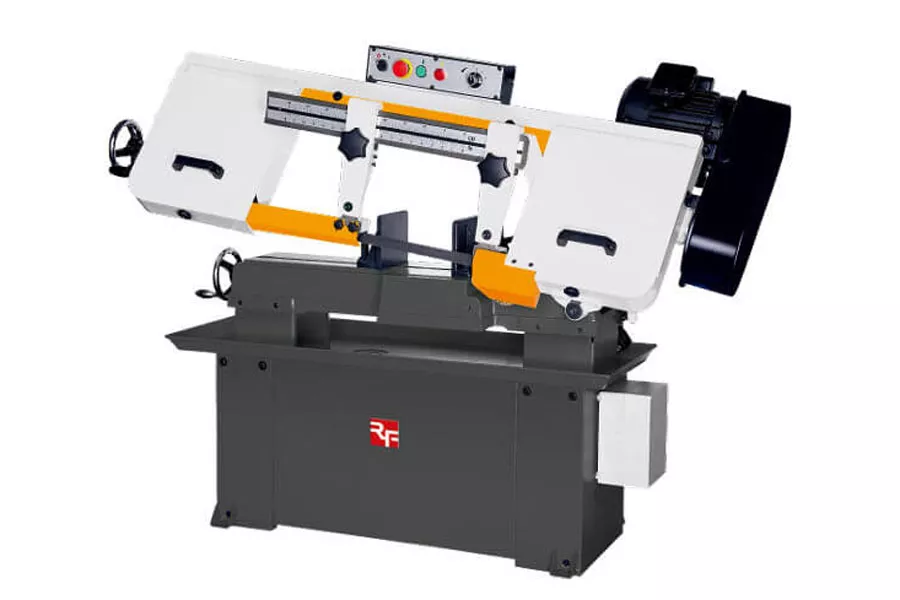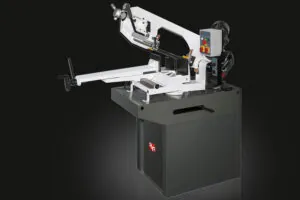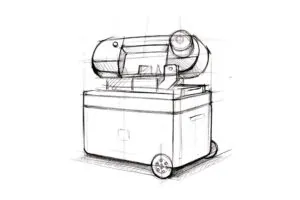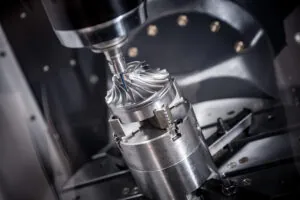A step by step guide to breaking in a new blade on your metal cutting bandsaw
Table of Contents
Why You Need To Break In Your Metal Cutting Bandsaw Blade
- Extends Blade Life
- Enables Faster & Cleaner Cuts
Extends Blade Life
To get the longest blade life from your metal cutting bandsaw blade you need to take care of a new blade and adjust it correctly. New blades will cause rough cuts and may be damaged if you start working them at full speed immediately after fitting them.
Enables Faster & Cleaner Cuts
When you ‘break in’ a new blade you are setting it up to get its optimum cutting profile for running at full production speed. You do this by running it slower than usual initially. This helps to get the cutting teeth into the correct profile for the cleanest cuts.
The Half Speed & Half Feed Rate Rule
Manufacturers sometimes provide information on how fast to run the blade and how fast the feed rate should be for the breaking in period, but there is also a standard rule that works for most blades.
The standard rule is to run your metal cutting bandsaw at ½ speed and at ½ your normal feed rate for the first 80-100 inches of cutting. After this you can run your blade at full speed and feed rate and will find your cuts will be cleaner and more accurate.
Adjusting Metal Cutting Bandsaw Blade Speeds
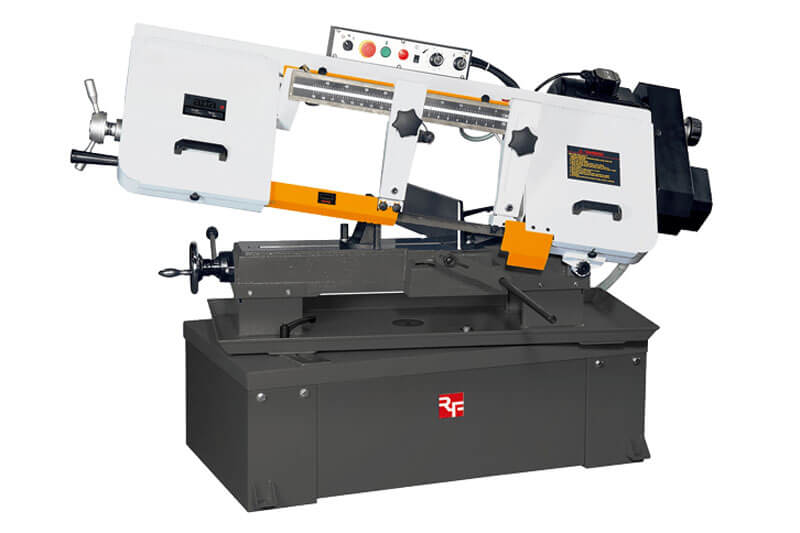
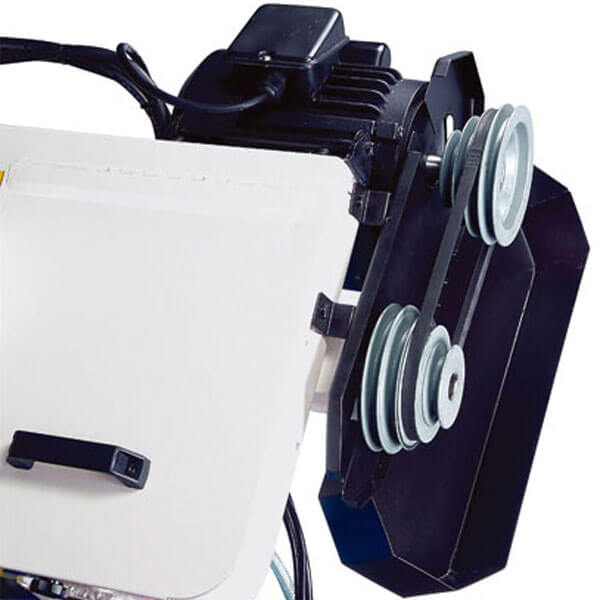
Your bandsaw will either have pulleys and a drive band, like the Rong Fu RF-1018S in the picture above (which is a step-pulley driven bandsaw) or an automatic control dial. For pulley driven bandsaws you will need to open the blade cover and move the drive band onto a larger final drive pulley. This will slow down the cutting speed.
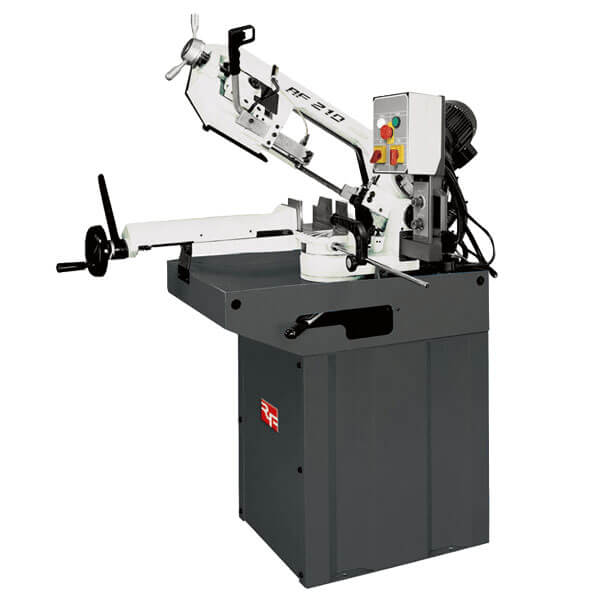
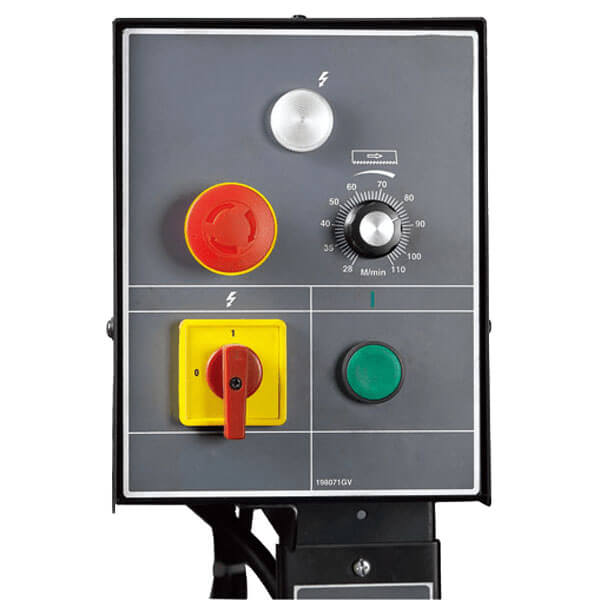
If you have an automatic control dial, like on our RF-210 model, then you will find it is marked with speeds. The RF-210 has a dial control giving you the blade speed in meters per minute, which makes it very easy to adjust.
Other metal cutting bandsaws may be marked with ‘1’ and ‘2’ for two fixed speed settings. Simply turn the dial down to half speed, or switch to the low speed setting when you are breaking in your bandsaw blade.
Adjusting the Feed Rate on Your Metal Cutting Bandsaw
Your metal cutting bandsaw will either have a manual feed, where you have to lower the blade onto the workpiece manually, using a lever or bar, or an automatic feed, which lowers the blade for you at a constant speed that you can set. Automatic feeds are usually hydraulically powered, like on our RF-916 bandsaw pictured at the top of this article.
On an automatic bandsaw you simply adjust the dial controller. If you are using the standard breaking in formula you will turn the dial back half way or to a speed that is half your usual feed rate.
For a manual feed you will have to lower the blade at half the speed you do normally. It may help to time your normal production speed and then practice taking twice as long to lower the blade through the same distance.
An important point is that your baseline feed rate should be based on your existing production speed. You are aiming to run at ½ your normal production speed, and that will vary depending on your experience and the specific saw, blade and stock combinations you are using.
How To Tell Your Blade Is Broken In
New blades have sharp teeth, which is why you will get rough cuts and may damage the blade if you start with too fast a speed. A properly broken in blade has slightly rounded teeth, which enables smoother cuts with less likelihood of ‘catching’ on the cut as the blade feeds through the stock.
Visually inspect the blade after you have completed your 80-100 inches of cutting at half speed / half feed rate. You should find that the teeth have a rounder, smoother, profile than they had when the blade was new. You will now be able to cut and feed at your normal production speed.
How Many Cuts Will It Take To Break In A New Blade?
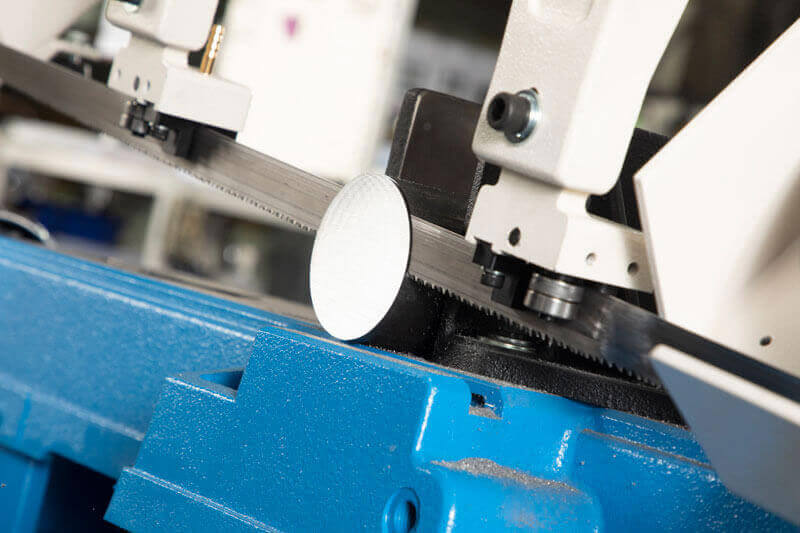
It’s very easy to work out how many cuts it will take to finish breaking in your metal cutting bandsaw blade. Simply divide the total distance in inches that makes up your break in period by the thickness of the stock you are cutting.
For example, if you are going to be breaking in for 80” of cutting and your stock is 4” thick, then it will take 80/4 = 20 cuts to break the blade in. If you are breaking in for 100” with 2” stock then it will take 50 cuts.
Remember To Follow Safety Procedures & Protect Yourself

As always, follow the recommended safety procedures in your metal cutting bandsaw manual and ensure you are wearing the correct protective equipment. You must wear eye protection and we recommend good quality safety gloves as well as a minimum.


